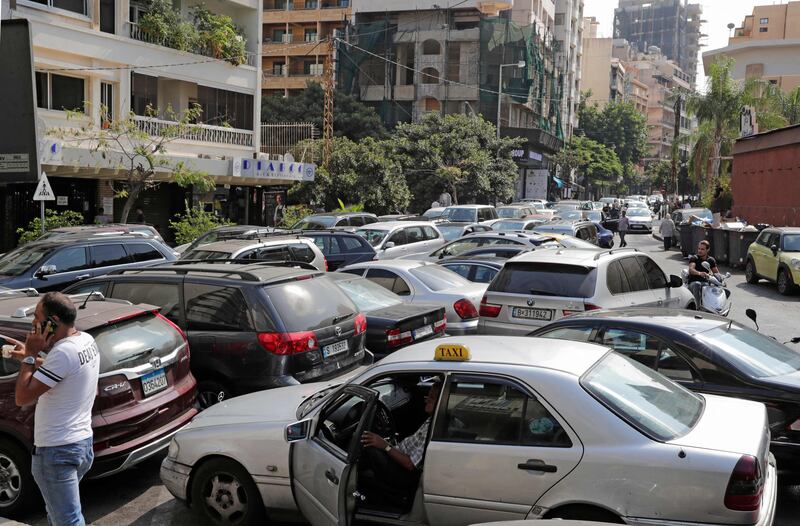A dispute over scarce fuel supplies spilt over into sectarian violence in south Lebanon at the weekend, prompting condemnation from religion-based parties.
The violence started when villagers from Anqoun Aina tried to force a petrol station in the nearby town of Maghdoushe to open on Friday, so they could fill their tanks, according to reports by the National News Agency.
A knife fight ensued, leaving six people injured.
On Sunday, villagers from Anqoun Aina attacked residents of Maghdoushe and vandalised their cars in retaliation for Friday’s incident.
The town mayor issued a statement calling for security forces to “do their part and arrest the aggressors”, saying, “No one will be allowed to insult the people of this town or attack them or their property.”
Politicians condemned the incident, which sparked fears that hardship created by Lebanon's economic collapse was intensifying the sectarian divisions that fed 15 years of civil war.
Anqoun Aina is predominantly Shiite, while Maghdoushe is mainly Christian.
Local TV station LBCI reported that the attackers in Maghdoushe vandalised Christian icons, although The National could not verify this claim.
Villagers in Anqoun Aina issued a statement on Sunday that said the dispute was purely “personal”.
“The people of Anqoun strongly condemn the tragic accident that some young men instigated the day before yesterday at the Total station in Maghdoushe,” they said.
The Shiite Amal movement denied any involvement in the violence. The group is a close ally of the Iran-backed Hezbollah movement and holds sway in south Lebanon.
“We have nothing to do with what happened in the town of Maghdoushe and consider it totally unacceptable,” it said.
“This is not in line with values of co-existence cherished by the movement.”
Maghdoushe municipality said it called the office of Parliament Speaker Nabih Berri, who heads the Amal movement, asking him to “immediately intervene”.
Former Christian MP Samy Gemayel condemned disputes with weapons, saying “the latest is what we saw today in Maghdoushe and that quickly turned sectarian”.
Fights over fuel at petrol stations have become common as motorists queue for hours amid severe shortages.
The central bank has been struggling to secure foreign currency to import fuel, medicine and other essential goods.
Lebanon's civil war from 1975 to 1990 pitted mostly Muslim pro-Palestinian parties against right-wing, mostly Christian groups. A power-sharing agreement between the country’s 18 sects ended the war and still stands today.
Under this, Lebanon’s president is always a Christian Maronite, the prime minister a Muslim Sunni and the parliament speaker a Muslim Shiite.







